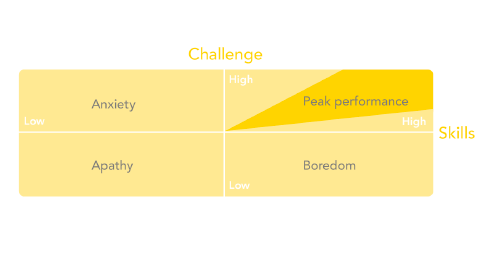- Products

Enjoy a free 30-day trial of our
data validation software.Experience the power of trusted data
solutions today, no credit card required! - Solutions

Enjoy a free 30-day trial of our
data validation software.Experience the power of trusted data
solutions today, no credit card required! - Partners

Enjoy a free 30-day trial of our
data validation software.Experience the power of trusted data
solutions today, no credit card required! - Learn more
- Pricing
- Contact Us
Achieving peak performance

Last week, our Women in Experian group hosted an event in our Boston office, focused on how to “Achieve our Peak Perforce,” led by Christine Fiske. Christine is a Senior Digital Marketing Freelance Consultant, working primarily with startups and VC firms. Currently, she is working to become a leadership development facilitator and presented her session about achieving peak performance. Here are three takeaways I gained from this unique event:
1. What exactly is peak performance? Peak performance is achieved when your skills are high and the challenge is also high. In other words, your skills fully meet the challenge you are facing, professionally or outside of work. When you are at peak performance at work, you get into a sort of ‘flow’ where there is nothing stopping you from achieving your best professional self. An example of peak performance outside of work might be on a run when you achieve that “runner’s high.”
 Image courtesy of Mind Gym
Image courtesy of Mind Gym
2. Peak performance should be clearly defined. You should have a clearly defined idea of what peak performance looks like for you. This will make working towards it that much easier. After defining what your peak performance will look like, you should understand the skills that you need to gain in order to achieve to peak performance. You should also recognize what skills you may already have, but need to develop. These clear definitions will allow you to keep focused and work towards peak performance with minimal obstacles. Once you achieve it, there should be a general, “Wow I’m rocking my job and it feels awesome!” sentiment running through you. Whatever your peak performance may be, you should have an idea of what it looks like in the back of your mind to motivate yourself in your journey towards it.
3. We aren’t always going to be at peak performance. There is a sort of cycle in place when it comes to the art of peak performance. At work, when the challenge is low and the skills are low, you are in a sort of apathetic state. You can then move into boredom if your skills are high, but you are not being challenged. If you sit in either of these areas within your professional (or personal) life, you should be taking initiative to make a change. Ideally, you will be in a cycle going from anxiety and building to peak performance. Anxiety is when the skills are low, but the challenge is high. For example, you take the promotion at work and you need to ramp up your skill set. It’s normal to be in an anxiety state some of the time, especially when you take on new responsibility. However, once your skills ramp up to the new challenge, you can achieve peak performance. In other words—you’re rocking your job. Understanding this cycle is important because the next time you’re feeling like you are stressed at work, take a step back and remember that you are ramping up to achieving peak performance.
Overall, this speaker session was key in not only understanding what peak performance means, but also how and what it looks like to achieve peak performance at work. As a member of Women in Experian, I’m excited to put this knowledge to use, and am already looking forward to our next speaker session!
Are you interested in applying for a position at Experian Data Quality?
